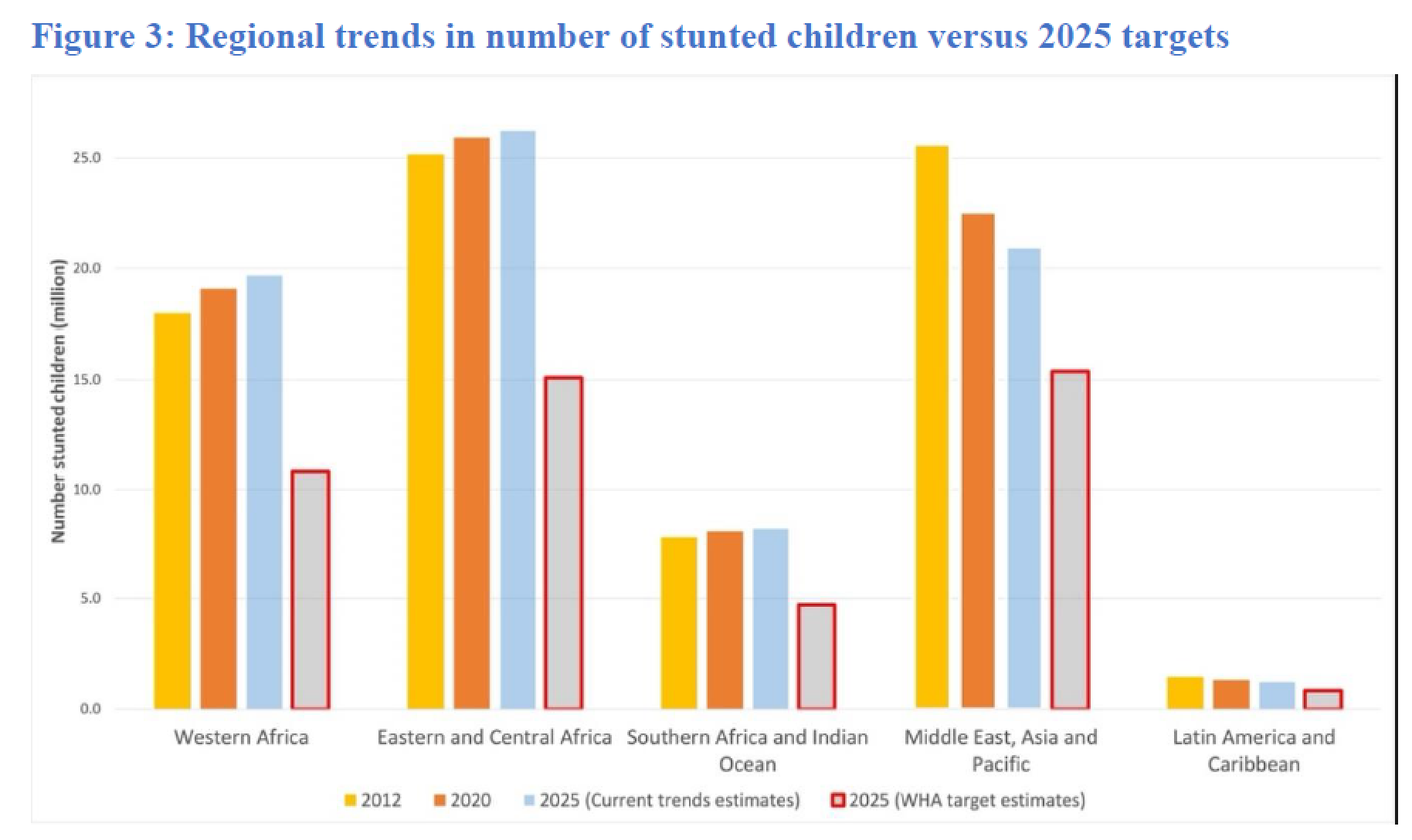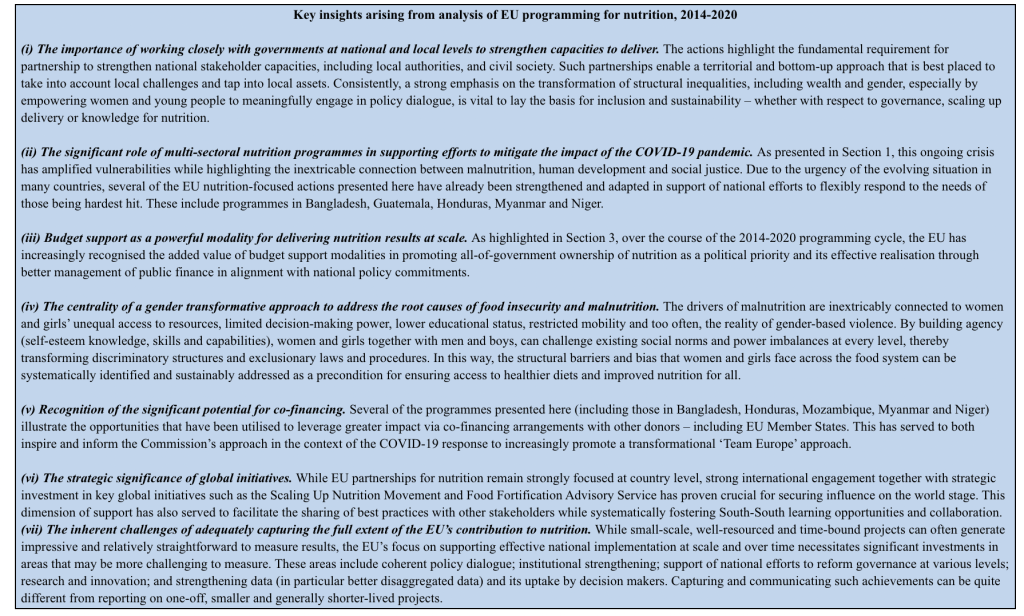This sixth progress report marks a critical juncture between two European Union programming cycles: 2014-2020 and 2021-2027. The report provides an update on achievements with respect to the two ambitious commitments on nutrition: to support partner countries reduce the number of stunted children under the age of five by at least 7 million by 2025; and to allocate EUR 3.5 billion to nutrition between 2014 and 2020.
The annual resource tracking exercise presented here confirms that by 2020, the EU’s EUR 3.5 billion global pledge for nutrition had been achieved and even surpassed by EUR 800 million. The proportion of children suffering from stunting has fallen by an average of 6.2 percentage points. Additional progress had also been made in terms of child wasting, low birth weight and exclusive breastfeeding.
With the onset of the COVID-19 pandemic and the resulting impacts on people’s lives, significant ground may have been lost. Even before this crisis and despite the important EU contribution, the world remained off-track to meet the internationally agreed World Health Assembly (WHA) target for stunting reduction. COVID-19 shines a spotlight on the strong causal connection between the widespread reductions in household income arising from pandemic-related disruptions and the fact that modest gains made in reducing global maternal and child undernutrition now stand to be reversed.
A detailed regional perspective is provided in this report to assess the delivery of country-level results against the three strategic priorities for nutrition outlined in the Nutrition Communication and Action Plan. The analysis reinforces the EU’s conviction that what works best for improved nutrition is a locally adapted, sustained, multi-sectoral and rights-based approach with a strong focus on tackling entrenched inequalities such as those relating to wealth and gender. The EU recognises that food system transformation is a necessary but by itself insufficient requirement for the eradication of hunger and malnutrition. The entrenched economic and social structures that underpin income, gender and racial inequalities must also be tackled if the world’s poorest and most vulnerable people are to progressively realise their right to food and adequate nutrition. A holistic and multi-systems approach to ensuring the realisation of fundamental human rights to food, water, decent work, health, education and social protection therefore remains a prerequisite. This approach will continue to remain at the heart of the EU’s efforts to address malnutrition in all its forms.


| Year of publication | |
| Publisher | European Commission |
| Geographic coverage | MozambiqueMyanmarNigerZimbabweUgandaBurkina FasoBurundiBangladeshLao People's Democratic RepublicMadagascarKenyaGambiaHondurasGuatemalaGlobal |
| Originally published | 03 Sep 2021 |
| Knowledge service | Metadata | Global Food and Nutrition Security | Nutrition | BreastfeedingFood systemMicronutrientStuntingWasting |
| Digital Europa Thesaurus (DET) | COVID-19malnutritiondevelopment aidhumanitarian aidinternational aidaid evaluationObesity |
